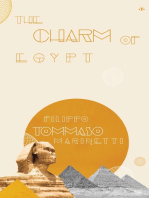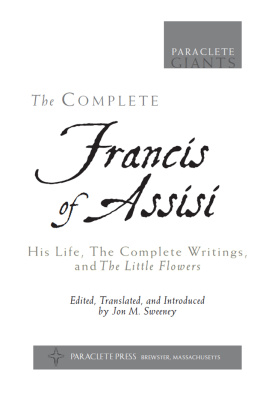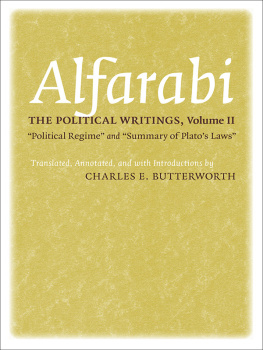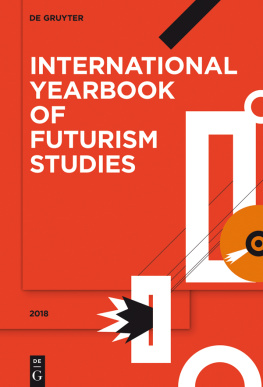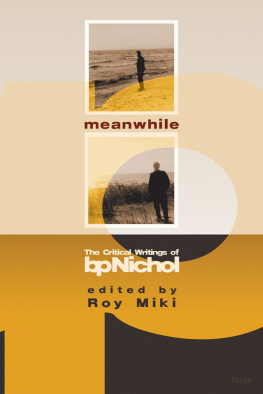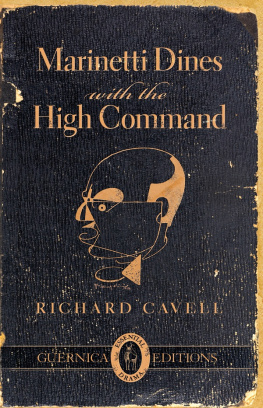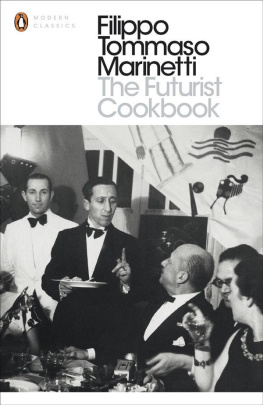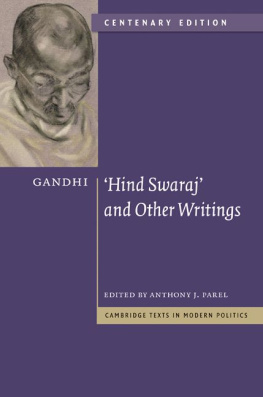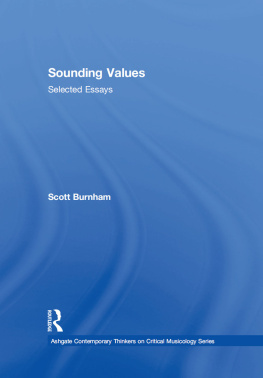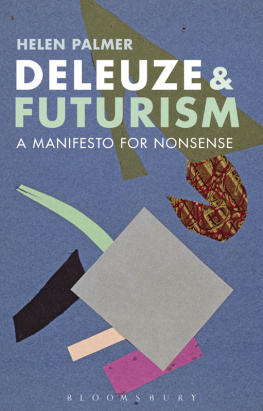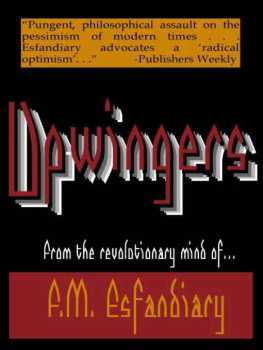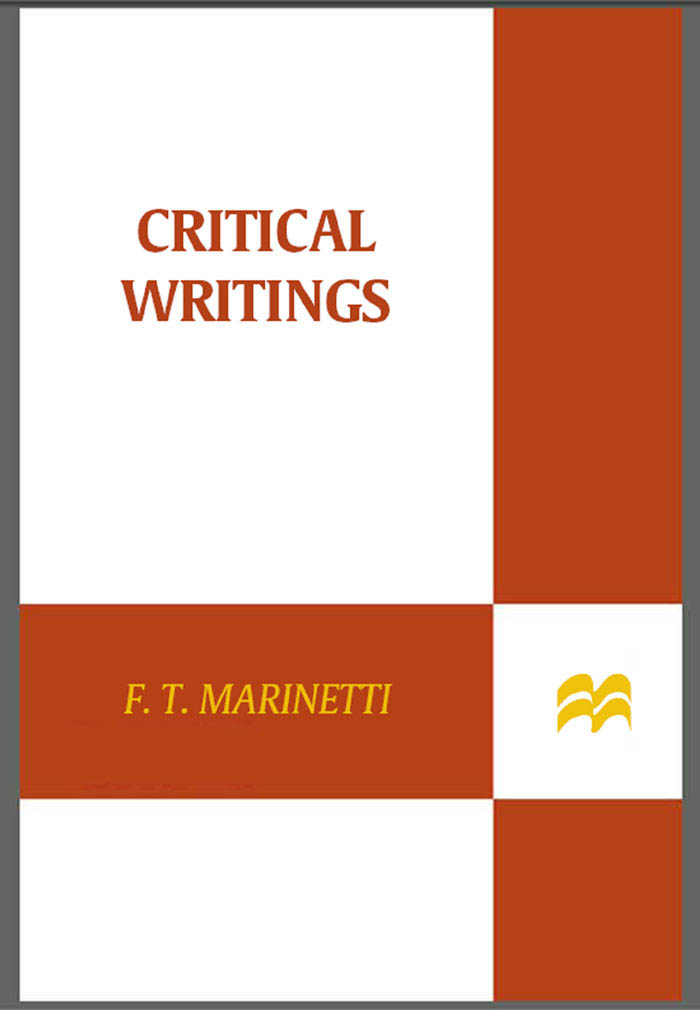
Farrar, Straus and Giroux
19 Union Square West, New York 10003
Copyright 2006 by Luce Marinetti, Vittoria Marinetti Piazzoni, and Ala Marinetti Clerici Translation, compilation, editorial work, foreword, preface, and introduction
copyright 2006 by Farrar, Straus and Giroux, LLC
All rights reserved
Distributed in Canada by Douglas & McIntyre Ltd.
Printed in the United States of America
First edition, 2006
Library of Congress Cataloging-in-Publication Data
Marinetti, Filippo Tommaso, 18761944
[Selections. English 2006]
Critical writings / F. T Marinetti ; edited by Gnter Berghaus ; translated by Doug Thompson.
p. cm.
Includes bibliographical references and index.
ISBN-13: 978-0-374-26083-5 (hardcover : alk. paper)
ISBN-10: 0-374-26083-4 (hardcover : alk. paper)
1. Futurism (Literary movement)Italy. 2. Italian literature20th centuryHistory and criticism. I. Berghaus, Gnter, 1953 II. Title.
PQ4088M29813 2006
858'.91209dc22
2005024282
Designed by Debbie Glasserman
www.fsgbooks.com
1 3 5 7 9 10 8 6 4 2
EDITORS FOREWORD
The idea of publishing a new translation of F. T. Marinettis critical writings goes back to the year 2001, when Luce Marinetti informed me that Farrar, Straus and Giroux intended to reissue its edition of her fathers book F. T. Marinetti: Selected Writings, which had been first published in 1972. Soon afterward, I had the occasion to speak to Roger Straus and to tell him that as a university professor who had been teaching Futurism for fifteen years, I very much hoped that he was going to publish more than just a reprint of the Flint-Coppotelli edition, which was now some thirty years old and no longer meeting the needs of a new generation of students and scholars.
Since the 1970s, Futurism has become a standard subject in university courses of art history, Italian studies, comparative literature, drama, and so on. However, most students lack the necessary linguistic skills to use the Mondadori edition of Marinettis collected writings, and only a small number of texts has become available in English translation. Flints edition was a pioneering one in the Anglo-Saxon world, but since its publication, more than two thousand books have been published on Futurism and have caused a considerable shift of emphasis in what is being taught in seminars dedicated to the Futurist movement. R. W. Flints F T. Marinetti: Selected Writings and Umbro Apollonios Futurist Manifestos are currently the two most widely used text collections of Futurist manifestos, but unfortunately both omit a large number of writings that are now considered to be central to our understanding of Futurism, such as political manifestos and reflections on Futurist theater and action art. Both books have been out of print for many years and, as I suggested to Roger Straus, it was the right time to replace them with an expanded edition of Marinettis critical writings.
During my next visit to Rome, I discussed the matter again with Luce Marinetti, who fully supported my suggestion and proposed me to Mr. Straus as a suitable editor for such an undertaking. I compiled a list of writings that I felt should go into the new edition. However, these texts would have amounted to two substantial volumes, which in the current climate in the publishing world was deemed unfeasible. For a while I reflected on the possibility of compiling a volume of writings that had been excluded from the Flint-Coppotelli edition, but as quite a few texts in that collection were incomplete, and the translations did not always capture the meaning or flavor of the original, I decided to present a new list to the publisher. It included all manifestos generally considered to be fundamental for an understanding of Marinettis aesthetic conceptsamong them literature, theater, cinema, radioplus a selection of critical writings from the early and middle period of the Futurist movement. Unfortunately, a representative sample of texts from the pre-Futurist period, 18841908, had to be omitted, and the number of proposed writings from the 1920s and 30s was reduced from twenty-five to eleven. Some manifestos, which carried Marinettis signature but were essentially the work of other writers and artists, also had to be sacrificed.
Initially it had been suggested that I should function as both editor and translator of the edition. Although my command of the English and Italian languages is quite good, neither is my native tongue. Furthermore, I am not a philologist but a theater scholar, writer, and director. I therefore began a search for a suitable translator, one who was familiar with the Italian literature and culture of the early twentieth century, had an interest in the avantgarde, andlast but not leasthad the time to turn some 200,000 words of highly complex prose into English. I am glad to say that my collaboration with Doug Thompson, who had recently retired from his professorial chair at Hull University, has been excellent, and his experience as a translator, as well as his extensive knowledge of twentieth-century Italian literature and politics, has been a great asset in this endeavor.
I have attempted to enhance comprehension of the texts by adding notes to sentences containing references to concepts, names, and subject matter unlikely to be generally known to a twenty-first-century public. In several cases I also had to explain neologisms or expressions that had assumed a specific meaning in Futurist circles. For example, the terms passatismo (traditionalism) and passatista (traditionalist), originally coined by Enrico Annibale Butti, took on a new dimension in Marinettis writings, when he directed venomous attacks on a culture that rated the achievements of previous centuries above modern developments. We translated this term, variously, as clinging to the past, traditionalism, or fogydom. Amore (love) or sentimento (feeling) are not usually, in Marinettis essays, neutral descriptions of the sensations of the heart, but instead relate to an insincere, hollow, overblown display of emotion. They do not refer to true, deep feelings, but to a gushy mawkish, romantic, tear-jerking emotionalism, for which, again, we have used a variety of expressions in our translations. Some technical terms, used over and over again by Marinetti, had to be rendered in a consistent fashion. The choice of words we finally settled on was not always the most obvious, but it was the most appropriate one in this contextfor instance, parole in libert (Words-in-Freedom), fisicofollia (Body Madness), sintesi (minidramas), interpenetrazione (intermingling), sinottico (multichanneled), moltiplicato (extended), eccitatorio (Board of Initiatives). This means that some familiar titles of manifestos have been altered to reflect this choice of terminology, for example Dynamic, Multichanneled Recitation (rather than Dynamic and Synoptic Declamation), Extended Man and the Kingdom of the Machine (rather than Multiplied Man and the Reign of the Machine), and A Futurist Theater of Essential Brevity (rather than Futurist Synthetic Theater).
In the annotations the reader will find quite a few references to my own publications on Futurism. This is not intended as selfaggrandizement, nor as a deprecation of other scholars writings on the subjects. As this collection of essays and manifestos is, in the first instance, aimed at a public unfamiliar with Italian, any references to critical literature in a non-English language are unlikely to be of much use to the reader. So, at a time when some 98 percent of studies concerned with F. T. Marinetti or Futurism are only available in Italian, my own modest contributions assume a rather disproportionate significance to the English or American reader. Critical literature and editions repeatedly referred to in the Notes have been listed in the short Bibliography at the back of the volume.


